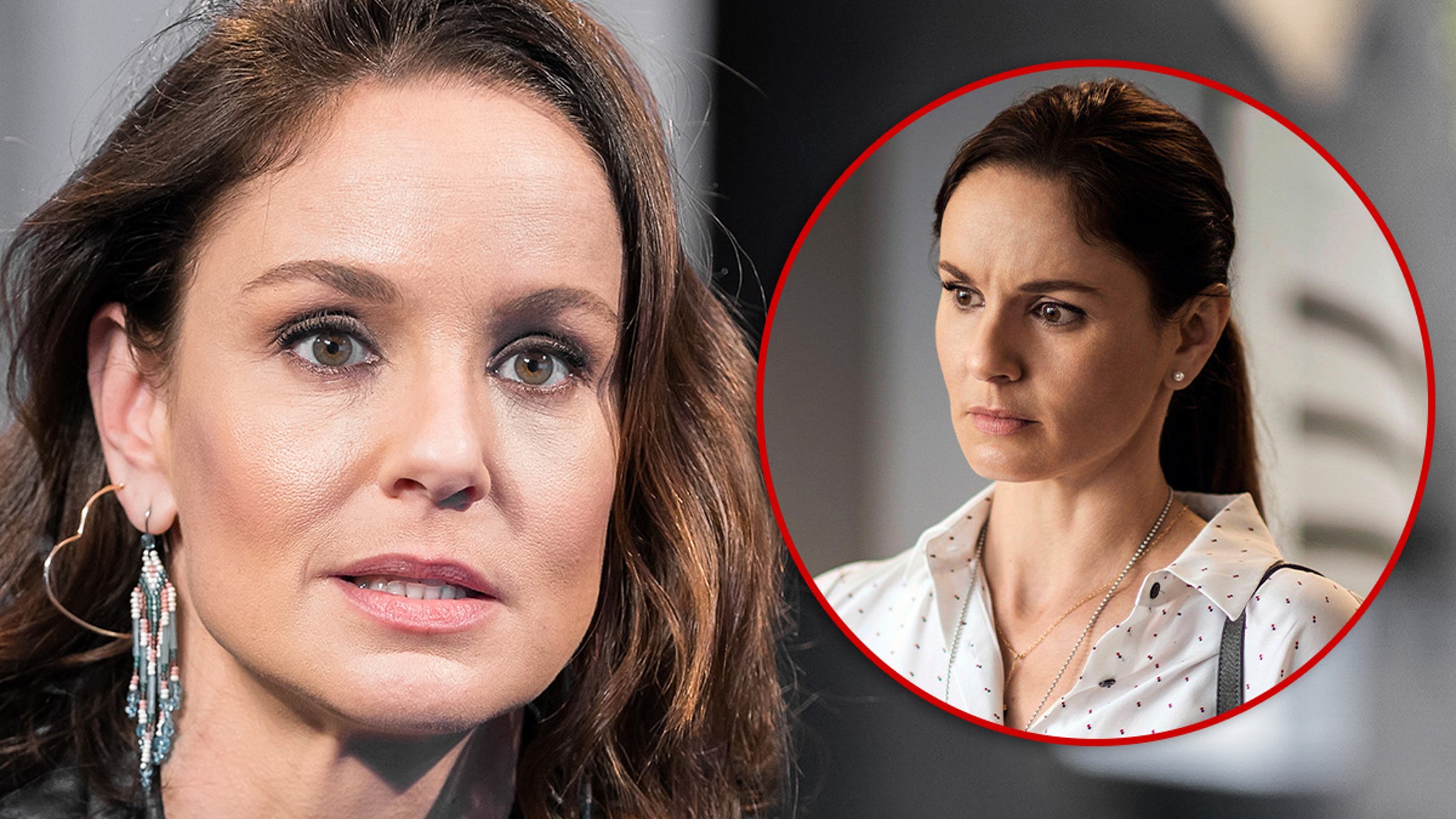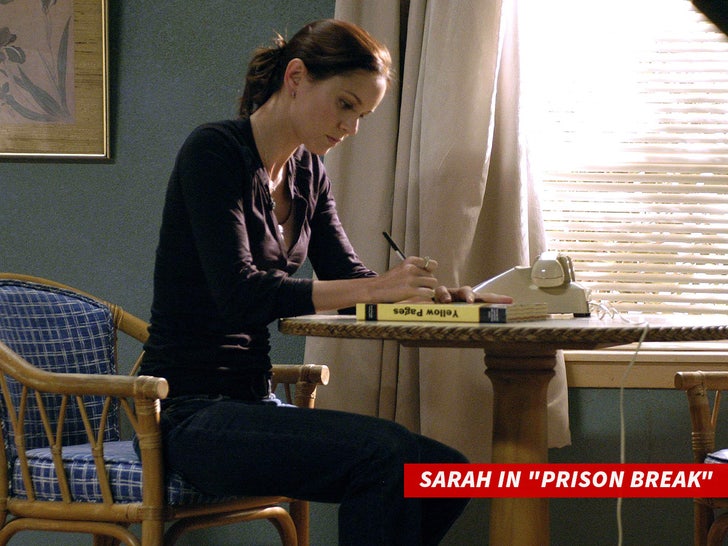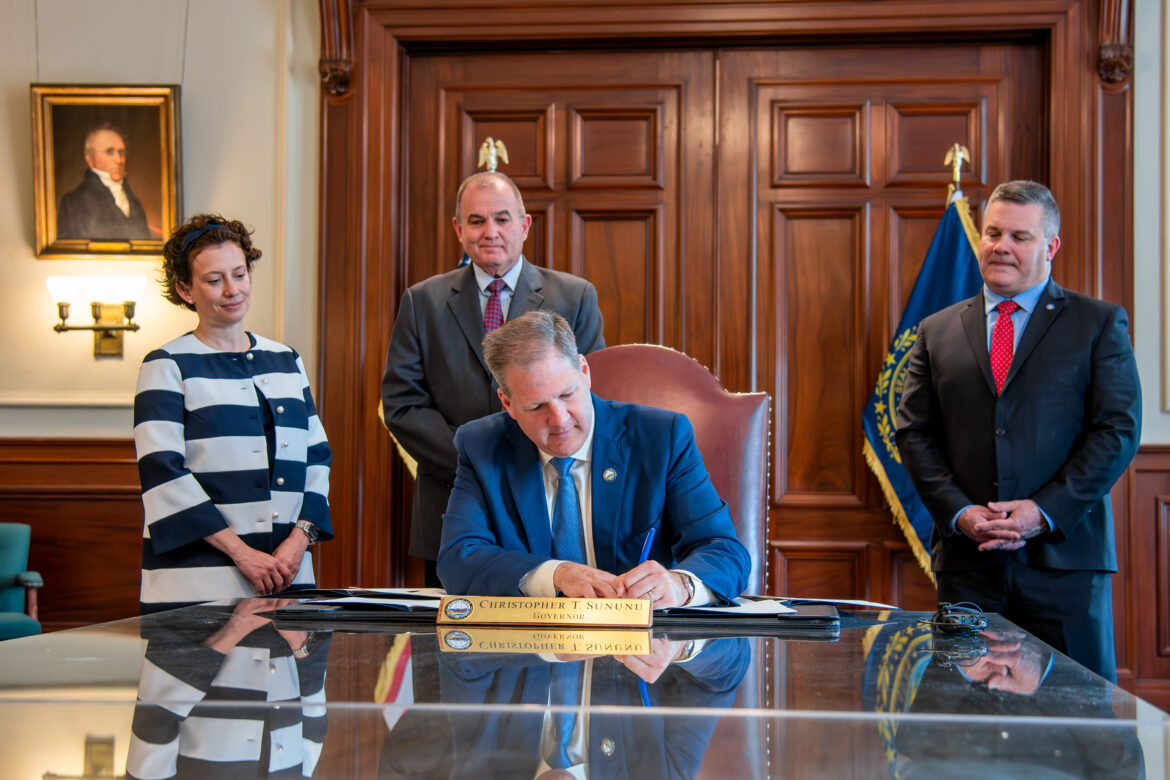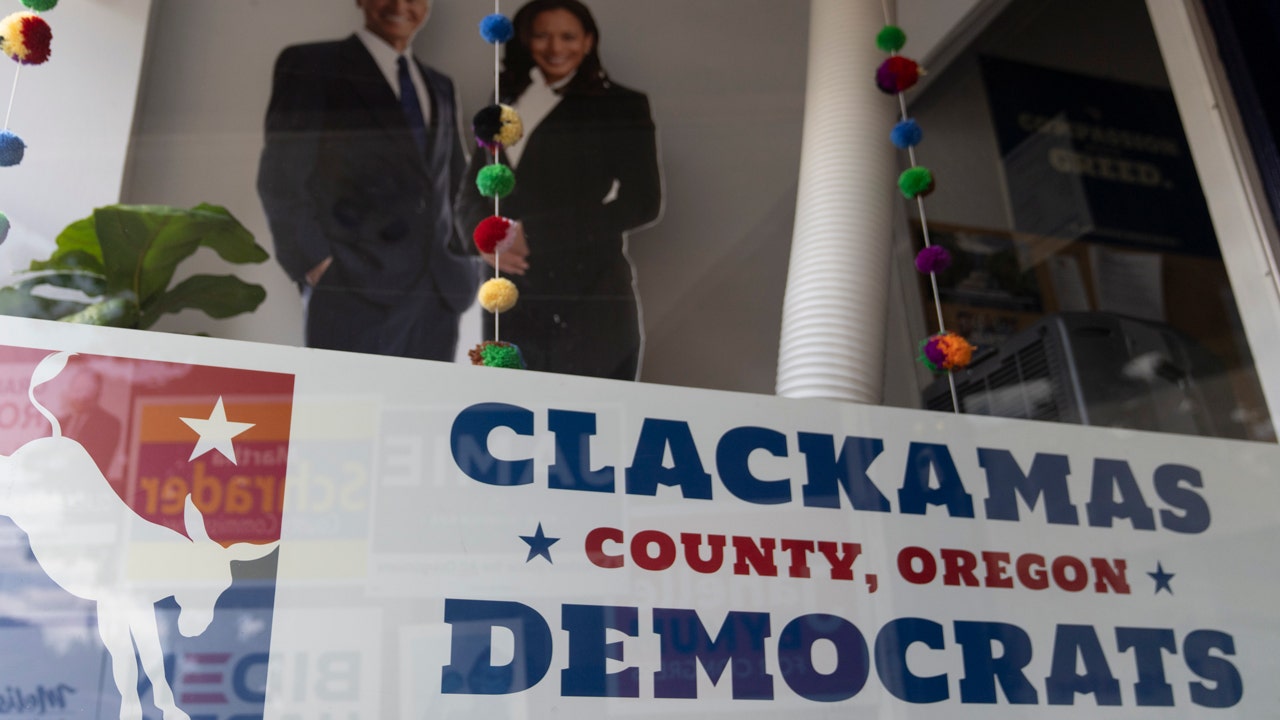Lifestyle
Can straight married men and women be friends? I went on a quest to find out

Last fall I met a guy.
He had a thick mustache and was, by my estimate, at least 10 years my junior. We happened to sit next to each other at a dinner event at my social club. I’d recently watched “Wild Wild Country,” a documentary series on a religious cult, and it was all I wanted to talk about. It turned out that he loved documentaries on religious cults too. Soon he was listing others I needed to see. We ended up discussing movies, Buddhism and his home state of Vermont for most of the night. He was funny, enthusiastic, friendly and smart. I felt lucky to have met him.
When the event wrapped up I thought about asking for his number — maybe we could get a drink sometime? But I decided against it. If he’d been a woman or gay I wouldn’t have hesitated, but we are both in committed heterosexual relationships. I in a fulfilling marriage with my awesome husband, he in what seemed like a happy relationship with his girlfriend. I didn’t want to date him, I just wanted to hang out again. But for two people in our situation, is pursuing an independent friendship even allowed?
I’ve always thought of myself as someone who seeks out male and female friends equally, but now that I’m a married mother in my 40s it seems this is no longer the case. In the last decade I’ve befriended hetero and queer women, gay men and non-binary folks. But with a few caveats, I haven’t developed new friendships with straight guys. Had I unconsciously accepted the old adage from “When Harry Met Sally” that men and women can’t be friends because “the sex part always gets in the way”?
After my encounter with the fellow religious cult documentary fan, I began to wonder how I got here and if I was the only married woman who felt this way. Was this evidence of my age, or an instinct that spanned generations? Surely our understanding of relationships has evolved since Meg Ryan faked an orgasm in Katz’s Deli.
After talking with friends and strangers, therapists and a few professors, I’ve found that the answers to my questions vary wildly, depending on who you ask. And also: there is far more at play within platonic relationships than I’d ever thought.
“It’s different for everyone,” said Gaea Woods, a marriage and family therapist who practices in Los Feliz. “It’s up to you to decide based on the relationship if it’s appropriate or not.”
Despite the impact that social connection has on our well-being, research on adult friendships is scant, and even harder to come by when considering friendships between men and women.
“We focused so long on romantic relationships to the exclusion of other relationships that we simply don’t have basic data,” said Jaimie Krems, a social psychologist at UCLA and director of the university’s new Center for Friendship Research.
The few studies that do exist tend to look at male and female friends in their late teens and early 20s when researchers say opposite sex friendships are more common. But in my quest for answers, I did manage to find a study from 2012 published in the Journal of Social and Personal Relationship that included a survey of older adults in their 30s and 40s who were asked to list the benefits and challenges of having a friend of the opposite sex.
Overall, people in the study reported more pros than cons. They valued the conversation, emotional support, advice and especially the insights into how members of another gender think, but they also acknowledged significant challenges. Chief among them were navigating the jealousy of a romantic partner and the possibility that the friendship could lead to romantic feelings.
I know from my own life experience that these hurdles can be overcome. I’ve had several platonic male friendships over the years and they’ve never veered into dicey territory. My husband is also remarkably OK with these relationships and has female friends of his own. (Though, speaking with friends and acquaintances, I know this isn’t true for everyone). Even so, my current straight male pals are either friends from my youth or people I’ve met through work. Forging new platonic relationships with straight men outside of these categories feels more fraught.
When I told Krems about my discomfort, she suggested it may be because I’m uncertain about how my overtures of friendship will be received by straight men who I’ve just met. It’s less complicated with old friends, she explained, because those friendships are clearly defined as platonic.
“That relationship has a script already,” she said. “You know what it is and you aren’t negotiating what it could be.”
The same is often true for work friends.
“You have this very tight, well worn schema that we are adult colleagues who are going out to talk,” she said.
But with a new friend of a different sex, the parameters of the relationship have not yet been established. If I suggest going out for a drink, a guy who doesn’t know much about me yet might assume my intentions are romantic. Or even worse, his wife or girlfriend might.
“You don’t know what the great benefits are going to be of the friendship — maybe you guys have chemistry and can be best friends, but immediately the road blocks are apparent,” Krems said.
When I held an informal poll of women in my community, some said they have deliberately eliminated friendships with straight men from their lives.
Anja Ahkile, a doula and mother of three young girls who lives in Beverlywood said most of her romantic relationships started as friendships — including her relationship with her husband. (They were in the friend zone for a year before they got together.) Because of that she’s developed strict boundaries around her interactions with men. When she and her husband go out with another hetero couple she’ll shake the male partner’s hand rather than offering a hug, and she’s always careful to greet the woman first. She’s also told her husband she’s not comfortable with him developing close friendships with women.
“I could be friends with someone of the opposite sex, but what happens when me and my husband are in a rough patch and there’s this other dude who is easy going and we have a bond?” she said. “There is too much potential and fertile soil for the lines to get blurred.”
Akhile says she loves her husband, but she also acknowledges that there are other men in the world who she could have fun with. Falling for one of them is a risk she doesn’t want to take.
“I don’t want to ruin my marriage, especially when overall I’m happy in my marriage,” she said.
Like Akhile, I’m in a fulfilling marriage and certainly don’t want to risk messing it up. But is total abstinence from male friendship really necessary? The friendship researchers I spoke to say they don’t yet have enough data to draw conclusions.
“We know that most friendships across cultures and across eras have really been within sex, making mixed sex friendships a little less normative,” Krems said.
There is also some evidence that opposite sex relationships become more challenging as we age. April Bleske-Rechek, a psychology professor at the University of Wisconsin-Eau Claire and lead author of the 2012 study that looked at the pros and cons of opposite sex friendships said there is a difference between the dynamics of having a friend of another sex in early adulthood, when we are more likely to be seeking a romantic partner, and later in life when we are more likely to be in partnerships we don’t want to jeopardize.
“As people get older they are more likely to settle down with somebody and more likely to have kids, so the nature of their friendships changes,” Bleske-Rechek said. “Women in particular tend to make mom friends, and it’s just safer to go out with other couples.”
But then there’s Kendra Schussel, an environmental consultant in Burbank, and one of the few women I talked to who had developed an independent friendship with a straight married guy while in her 40s.
They started chatting while picking their kids up from an after school theater program and hit it off. The kids liked each other and the guy wasn’t working at the time, so he was able to do all the extra-curricular activities that his partner couldn’t. Over time they discovered that they both liked raunchy fart jokes and whiskey. Soon they were texting regularly. When Schussel started dating again after her divorce she talked to him about the men she was going out with. Eventually, Schussel became good friends with his wife, too.
“She never indicated to me directly or indirectly that it was a problem for her and she’s a therapist so I think she would have said something,” Schussel said. “I realize this is wildly unusual and I’m so grateful for this friendship.”
Schussel is proof that hetero opposite sex relationships are possible, but she has boundaries too. She’s touchy-feely with her female friends — linking arms, sitting close — but she doesn’t do that with her married male friends. She’s also promised herself that if she thinks she might want more from a friendship with a married man she has to end it.
“I trust myself,” she said. “I would never want to be the person who broke up a marriage or got in the way of someone else’s relationship.”
As for me, I’ve decided that while I really liked my dinner companion from the other night, I’m not going to pursue an independent friendship with him. Like Schussel, I’m confident I can keep the friendship platonic, but I don’t want to make him feel awkward by asking for his number, and I certainly don’t want to make his girlfriend suspicious that I have ulterior motives, especially when I liked her so much too.
Maybe if he and I had met in college or at a work event we would be great friends. But for now, I’ll just enjoy seeing him — and his girlfriend — together at my local social club.
She likes religious documentaries too.

Lifestyle
With age and sobriety, Michael McDonald is ready to get personal

Michael McDonald, 72, describes his voice as a “malleable” instrument: “Especially with age, it’s like you’re constantly renegotiating with it.”
Timothy White/Sacks & Co.
hide caption
toggle caption
Timothy White/Sacks & Co.

Michael McDonald, 72, describes his voice as a “malleable” instrument: “Especially with age, it’s like you’re constantly renegotiating with it.”
Timothy White/Sacks & Co.
Even Grammy Award-winning singer/songwriter Michael McDonald says he feels like an imposter sometimes.
“I don’t mean to be self-deprecating when I say this, but I never really understood why people gave me so much credit as a musician,” McDonald says. “I really am just, more or less, a songwriter who plays a little bit of piano.”
It’s an understatement. McDonald’s singular sound that has captivated audiences for generations and has given life to remixes, remakes and thousands of impressions from Tonight Show skits to The Voice.
His new memoir, What A Fool Believes, which he co-wrote with comedian Paul Reiser, chronicles McDonald’s childhood in Ferguson, MO., his early years as a session musician and his decades-long career as a member of Steely Dan and The Doobie Brothers and as a solo artist.

Throughout his career, McDonald was known for crossover hits. His 1982 single, “I Keep Forgettin’,” cracked the top 10 of Billboard’s Pop, R&B and Adult Contemporary charts, and was later sampled by hip-hop artists Warren G and Nate Dogg in their 1994 hit, “Regulate.”
McDonald says that earlier in his career, he tended to avoid writing about himself directly in songs. But looking back now, he’s noticed a shift in his music, which he attributes, in part, to becoming sober in the mid 1980s.
“More than anything, I think what people who suffer from addiction share universally is that we’re kind of hiding from ourselves. We’re kind of hiding from our feelings,” he says. “I’ve learned in sobriety to slowly peel back different layers.”
Interview highlights

Jim Shea/Brian Moore/Sacks & Co.

Jim Shea/Brian Moore/Sacks & Co.
On his first band, Mike and the Majestics
It was Mike and the Majestics, and I soon got demoted, and it was just the Majestics. We started when we were all around 12. I think our first gigs happened more like when I was 13. And the other guys were a year and two older than me.
Back then, we were playing basement parties, birthday parties for girls we knew in the eighth grade. And then we graduated to fraternity parties, at a very tender age, which my mother was not happy about. And so she enlisted my father to come on as our manager — not before we were exposed to some of the rites of passage that we were probably too young to witness. … We thought we’d died and gone to heaven. Because the girls were all really cute, and the frat guys were out of their minds and they would pass the hat. … But then we had a curfew because we were all like 12 and 13 years old. And in the course of all this, we learned all the filthy lyrics to “Louie Louie” and songs like that were college staples.
YouTube
On writing the Doobie Brothers’ song, “Takin’ It To The Streets,” which was inspired by gospel
The intro of the song just kind of popped in my head, and I couldn’t wait to get to the gig and set my piano up and pick the chords out on the piano. … It just felt like an opening to a gospel song and I loved gospel music at the time. … What better motif for that very idea of people falling through the cracks of our society and … and how do we do better by each other than a gospel song. … It took me a minute to come up with “Takin’ to the Streets” because that came from the idea that … we’ve got to do better by each other or this is what it’s going to come to. It’s going to be settled one way or the other. These kinds of progressive ideas and reforms don’t come easily, and they come by necessity. … We’re going to meet on the same plane one way or the other, maybe we can do it out of love for each other and consideration and empathy before we have to do it out of frustration.
On the realization that white artists were covering Black musicians’ songs and being praised for it

I think that was pretty much the experience of a lot of people in my generation growing up. White kids who thought that Pat Boone wrote, “Tutti Frutti.” We didn’t know any better, you know, because radio was so segregated, as was everything, in the United States at the time. It was a sad division in what really was such a strong part of our culture, you know, but it was always kind of isolated away from and giving credit to the people who really brought those art forms to America and, really gave America its own true artistic art form: Jazz and R&B music and gospel. …
For instance, the English invasion bands, we thought that they wrote those songs like, “It’s All Over Now” by The Rolling Stones was Bobby Womack and his brothers and had a group called The Valentinos, and that song was a No. 1 hit on Black radio when the Stones released it. … I never cease to be surprised by the roots of some music that I thought was more of a pop record, but that really has its roots in the blues tradition and was written by American artists who didn’t really enjoy the success of the song that other artists did.
On being big in the Black community
Whenever that was brought to my attention, by friends of mine who liked our music, I was really flattered by that. And I continue to be flattered because, to me, that’s really the test of anything I ever really desired to do was to represent, in my own way, what I truly believe is American music. To have that privilege of being able to do that and have it accepted by the audience who I believe created it, who invented it and brought it to all of us.
On how his voice has aged
The voice is a malleable instrument, at best, and especially with age, it’s like you’re constantly renegotiating with it. I find that at my age now, I’m just trying to figure out what my strengths are and what I can use to put the song across. I wish in some ways I could sing with the range or the sense of pitch or whatever it is I had when I was younger. But unfortunately, those things change over the years. …
I’ve been less reluctant to lower keys and stuff, and especially if it brings a better performance out of me, but I found that a lot of things have changed. … I have to kind of learn what still works for me when I’m singing, because I don’t want to be trying to sound like I used to sound and have that be obvious. I want to just be able to do what I do best now.
Sam Briger and Susan Nyakundi produced and edited this interview for broadcast. Bridget Bentz, Molly Seavy-Nesper and Meghan Sullivan adapted it for the web.
Lifestyle
'Prison Break' Star Sarah Wayne Callies Claims Male Costar Spat in Her Face

Sarah Wayne Callies claims one of her male costars on “Prison Break” spat in her face — just one example, she says, of the rampant misogyny she had to deal with as the only gal.
The actress went on the ‘Broad Ideas’ podcast Monday, with SWC explaining that playing Sara Tancredi on the FOX series — which aired from 2005 to 2009 — was a double-edged sword … ’cause she faced harsh realities, including an alleged ugly incident she recounts.
Broad Ideas with Rachel Bilson

Sarah says that a male actor on the show hawked one onto her mug — and while she doesn’t get into specifics, including any names, she says it was emblematic of the vibe on set.
She does suggest she’ll get more into this in her own podcast eventually … but she left the hosts shocked by the revelation — and you can tell, even now, Sarah grapples with how she handled it at the time.
As she says … she would have to go home sometimes and talk her husband “out of going to hospitalize somebody.” So, on its face, it sounds like her hubby was aware of this.
The show — which starred the likes of Wentworth Miller and Dominic Purcell — became an instant hit at the time … and catapulted its cast to stardom — and Sarah attributes their new rush of fame to the chaos and messiness on set.

Despite the challenges she dealt with … Sarah made it clear not all the men on the show were jerks — some, in fact, were total gentlemen and she says she made friends too.
Looks like Sarah’s reclaiming her on-set experiences and making the best of it … especially after launching the “Prison Breaking with Sarah and Paul” podcast earlier this year, where they watch and dissect old episodes.
The show was so successful it spawned a TV film in 2009, and even saw a revival season in 2017 — with Sarah appearing in them all. As for the alleged spitter … TBD.
Lifestyle
Why you should think twice before posting that cute photo of your kid online


Many parents share photos and videos of children on social media: birth announcements, their kid making a mess at the dinner table, their milestones like a first step.
But there are potential dangers to constantly posting about your child online, says Leah Plunkett, a faculty member at Harvard Law School who specializes in children, family law and technology. In Plunkett’s 2019 book Sharenthood: Why We Should Think Before We Talk About Our Kids Online, she explains how adults can put children’s privacy and personal data at risk.

This phenomenon is called “sharenting,” says Plunkett. Legal scholars in her field use the term — a portmanteau of “sharing” and “parenting” — to describe “all the ways that parents, aunts, uncles, teachers, coaches and other trusted adults in a kiddo’s life transmit children’s private information digitally.” It can make kids vulnerable to identity theft and harassment. And as they grow older, it may undercut their ability to tell their own story.
Plunkett talks to Life Kit about the different harms of oversharing, how to post information about your kid safely and how to talk to loved ones about your limits. This interview has been edited for length and clarity.
Parents share a surprising amount of data about their kids online. A birthday photo, for example, can reveal a kid’s name, age and date of birth. What are some of the privacy concerns around that?
There is a thriving black market for personally identifiable information. Kids’ Social Security numbers, when combined with date of birth, name and address, are often good targets for identity theft. Most minors don’t have credit attached to their Social Security numbers, so [someone may be able to use them to] open fraudulent lines of credit.
Creditors don’t verify the age of applicants, so a bad actor could potentially open a credit card without anyone noticing until the kid becomes an adult and wants a card of their own. What are some other security risks?
There are tragic cases of stalking, bullying and harassment. They are rare but they do happen.

So someone could use social media to figure out where your kid lives, goes to school and their patterns and routines. They could also learn about their likes and dislikes and use them in an insidious way.
Other people don’t need to have information about the ins and outs of your child’s emotional and personal life.

You write in your book that children’s data is a form of currency. And there’s the adage that if a product is free, you are the product. What should adults think about when giving a company their child’s data? Or when reading the fine print on a social media platform?
Parents should be aware that they’re not going to know at the moment where a piece of information, photo or video, might go. When we click “I accept,” those agreements give companies and third parties a lot of latitude about what they can do with your data.
After my book came out, The New York Times ran a big investigative piece about the ways in which social media photos of toddlers and young children had been surreptitiously used to train facial recognition software. That’s one of many examples.

Also, at some point down the road, maybe somebody makes a decision about your child based on the stuff you’ve put out about them — how your child is doing at school, how they’re moving through the world. Maybe that is an individual human decision maker. Maybe that is an algorithmically driven data analysis product.
And when you mean decision makers, that could be a university recruiter or a hiring manager. And that may affect your child’s ability to tell their own story.
To themselves or to others in the future. If the world is figuring out significant things about who they are online and making projections about who they’re going to be, it can undercut their ability to figure that out for themselves.
Reading your book, it’s clear you’re not like a Luddite. You have kids, but you haven’t sworn off social media. How do you avoid oversharing the digital realm?
Since I started researching this topic, I adjusted my own personal compass to be very minimalist. I pretty much never post my kids on social media. If I do, you don’t see their faces or anything that would identify them. I don’t use full names. I don’t celebrate their birthday on social media. I don’t show the kids standing in front of where they go to school.
I follow a “holiday card-or-less” rule of thumb when sharing on social media: updates you’d be comfortable with anyone, from your great aunt to your boss, seeing. Information that’s not going to embarrass anybody and isn’t particularly private.
Personally, my wife and I are pretty tight about the pictures we share of our kid. How do we prevent other people, like family and friends, from taking photos of them at, say, a baptism or a birthday party, and posting it online?
For something like a baptism or another rite of passage, it’s probably impossible to get everyone to not celebrate their joy and pride by taking out a phone. But it is OK to make a gentle request. You might say: Thank you so much for being in this moment with us. To really be in the moment, we would request that you refrain from pictures or videos.
Some people will listen, some people won’t. Then make the call about whether or not it matters enough to you to follow up privately with the people who you see taking pictures and videos.
How do you model digital consent with your kids?
The conversation starts with very young kids. Explain what you’re doing, why you’re doing it and where the image or video is going. You might say something like, “Hey, we’re having a really great meal. We’re using a recipe your grandfather sent us. I’m going to take a picture for him. Everybody smile for grandpa.”
You could also ask your kid at a pretty young age, “are you OK with taking a photo? Anyone not feeling up for it?”
What questions should parents ask themselves before they hit post?
Are you posting a picture of your child in any state of undress? If you are, please don’t post it.
Are you sharing your child’s location, full name or date of birth? If you are, think about whether that level of detail is necessary for your post.
If your parents shared a similar post about you at this age, how would you have felt about it? If the answer is that it would have really bothered you, take another minute to think about what you need from this post.
What advice do you have for parents who often share photos and videos of their children and their lives on social media? Is it too late for them?
I had the same reaction when I started researching all of this, and I’m here to tell you, take a deep breath. Don’t panic. If you want to change, go back over your social media posts and take down what you’re not so sure about. Then make your settings private.
Please don’t be hard on yourselves. Since the dawn of time, parents have been making the best choices they can at any given moment, and then later being like, maybe I’ll do that differently going forward.
The digital story was edited by Malaka Gharib. The visual editor is Beck Harlan. We’d love to hear from you. Leave us a voicemail at 202-216-9823, or email us at LifeKit@npr.org.
Listen to Life Kit on Apple Podcasts and Spotify, and sign up for our newsletter.
-

 News1 week ago
News1 week agoSkeletal remains found almost 40 years ago identified as woman who disappeared in 1968
-

 World1 week ago
World1 week agoIndia Lok Sabha election 2024 Phase 4: Who votes and what’s at stake?
-

 Movie Reviews1 week ago
Movie Reviews1 week ago“Kingdom of the Planet of the Apes”: Disney's New Kingdom is Far From Magical (Movie Review)
-

 World1 week ago
World1 week agoUkraine’s military chief admits ‘difficult situation’ in Kharkiv region
-

 Politics1 week ago
Politics1 week agoTales from the trail: The blue states Trump eyes to turn red in November
-

 World1 week ago
World1 week agoBorrell: Spain, Ireland and others could recognise Palestine on 21 May
-

 World1 week ago
World1 week agoCatalans vote in crucial regional election for the separatist movement
-

 Politics1 week ago
Politics1 week agoNorth Dakota gov, former presidential candidate Doug Burgum front and center at Trump New Jersey rally














